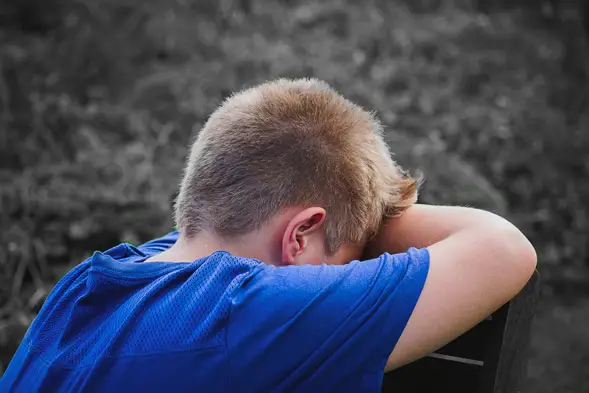
Mental health is as serious as physical health, so much so that there are defined professions and jobs aimed to help people recover from serious mental disorders. Knowing about the common problems, their symptoms, and how to reduce the risk of suffering from them can help individuals lead better lives and better identify when things are going wrong. Mental health can cover a huge amount of different disorders and conditions that won’t be covered here, instead, we are focusing on some of the more common problems.
Severity Scale
It’s important to know that many mental health issues can come with different levels of severity and therefore pose different amounts of risks and restrictions on a person’s day-to-day life. The first level of severity an individual can suffer from is mild problems. This is defined as when a person has a small number of symptoms that have a limited effect on their daily life.
A moderate mental health problem is the next level up and is used to describe when a person has more pressing symptoms that make their daily life much more difficult to navigate through than usual. This is then followed by a severe mental health problem which is when a person has the majority of symptoms where they are debilitating and make it almost impossible for an individual to function through life as normal.
A person can suffer through many different levels of severity at different times of their illness. A Psychiatric nurse can both determine the level of severity as well as diagnose the mental health problem. If you are interested in training to be a psychiatric nurse take a look at some online PMHNP programs.
Depression
Depression is one of the most common mental illnesses in America and alarmingly it’s continuing to rise, especially amongst younger people and millennials. The common symptoms of depression include a general low feeling and a loss of pleasure in things that one used to find enjoyable. Depression isn’t just a feeling of sadness, although sufferers are likely to experience this, but is more a combination of tearfulness, irritability, consistent tiredness, changes in appetite, and problems with sleeping.
Depression can be very tough for people who are either in school or at work as it can affect focus and concentration, making them more likely to struggle in performance. It can also be the cause of memory loss in severe cases but generally is associated with feelings of guilt and worthlessness, which can instill a lack of confidence. Ways to combat depression include being active, as this releases positive chemicals in your body to make you feel good, as well as having a good support network to talk about things and your feelings. Of course, if things get bad, it’s also worth seeking professional help in the form of therapists.
Generalized Anxiety Disorder

Anxiety is a mental disorder that is commonly described as a feeling of dread and worry that’s crucially excessive and out of proportion to a particular situation. It’s an illness that regularly accompanies depression and is one that makes it difficult for a person to control their worries. This can make it difficult for sufferers to adjust to new situations or change, as they like to feel a sense of control. A person suffering from anxiety may also feel irritable and have some physical symptoms such as restlessness, fatigue, and even tensing. People with anxiety may also have trouble sleeping.
Dealing with anxiety includes putting yourself in comfortable and calm situations as well as taking the time to give yourself moments to relax and unwind. Deep breathing exercises can also be amazingly effective as it can help reduce your heart rate which can put your body into a natural state of relaxation. Yoga and meditation can also be effective, particularly if you use that time to question your thought patterns and actively challenge your negative feelings. By doing this you can negate some of the fears and worry.
Panic Disorder
A panic disorder is strongly associated with anxiety but is characterized by unexpected and recurring panic attacks. A panic attack is where an individual’s heart rate increases and they get a sensation that makes it harder for them to breathe. Panic attacks can have specific triggers, such as certain situations that the person may fear or want to avoid, but it can also happen randomly and have no obvious cause. To avoid panic attacks many people try to change their behavior to avoid scary situations. This may lead to a phobia which can be damaging and can also lead to a less fulfilling life.
A good way to deal with panic disorder is by learning how to control your breathing and learning how to use positive coping statements which can improve your frame of mind. Of course, none of these coping methods is a replacement for physical and professional help so if you suffer from these issues and need support, please consult your doctor.

